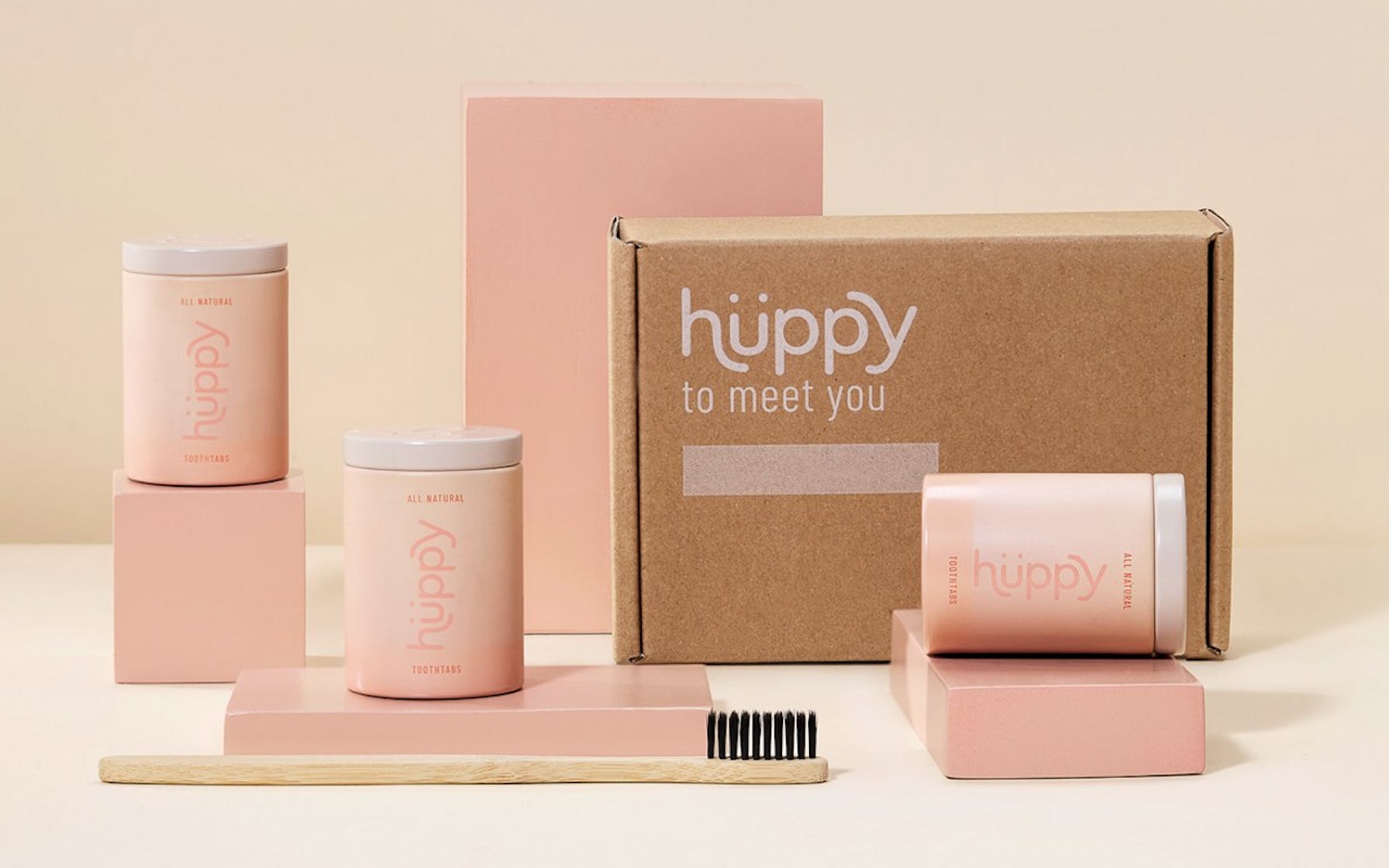• BEAUTY • HEALTH & WELLNESS
As the Masks Come Off, the Teeth are Whitened: Trends in DTC the Oral Care Industry

Reviewed by Emmy O'Leary
Last Updated December 2021

We took a look at the trends in the direct to consumer oral care industry post-COVID.
What’s Going On With Oral Care?
Who was the first person you called when you could take off your mask? If you’re like many Americans, you likely called your dentist.
According to NBC, SmileDirectClub reported a 47 percent increase in demand for teeth whitening this year and a similar increase in teeth straightening. In fact, the WSJ dubbed this “The Great American Cleanup” as people rush to purchase products like teeth whitener in an effort to reenter society looking better than ever. Put simply, the best accessory for 2021 may be a dazzling smile.
While this smile-driven frenzy is definitely being propelled by a variety of COVID related factors (i.e., easing restrictions, increase in vaccination rates, economic stimulus, consumer confidence etc) the oral care industry – on a global level – has experienced consistent growth: in 2020 it was worth $53 billion globally and is projected to be worth $96 billion in the next ten years with a CAGR of approximately 5.6%.
This steady growth is keeping us with consumer trends of spending more on self care and personal wellness and the rise of “cosmetic dental treatment aids in improving aesthetics and maintaining fresh breath” (Grand View Research). Oral care products that can effortlessly address another factor – whether its health, sleep, environmental waste, etc – in addition to cosmetic treatment are poised to succeed.
Remi, a sleep and wellness startup that hovers between the cosmetic and preventative dental health, illustrates this point. Oscar Adelman, CEO and Founder of Remi, explains that they originally started out by creating custom night guards but soon expanded to include custom teeth whiteners. He explains, “being able to whiten your teeth while wearing your night guard seems like a no-brainer, but it is because of the way we design and sell our night guards, which is different from anything else on the market, that uniquely allows our customers to do so. Our teeth whitening product was a result of listening to our customers.”
The Duality of Oral Care
First and foremost, Oral Health is a medical concern, and in countries like the United States where access to oral health products like toothbrush, toothpaste, and floss is as simple as going to your local drugstore or getting them delivered monthly to your door, it can be easy to overlook the importance of oral health care on a global level. According to the WHO, 3.5 billion people worldwide suffer from oral diseases which can also be linked to diabetes and heart disease. Needless to say, taking proper care of your teeth matters and consumers are seriously investing in forming healthy habits.
According to John Hopkins Medicine, Bruxism, a condition in which you grind, gnash, or clench your teeth, can result in chipped or cracked teeth, overly sensitive teeth, headaches, and the wearing away of the tooth enamel, which exposes the inside of the tooth. When reflecting on the role of a night guard in overall health, Adelman notes, “custom night guards are absolutely a preventative product. Bruxism and TMJ (i.e. teeth grinding and clenching) do tremendous damage over time both from an oral health standpoint and a mental health perspective in terms of sleep loss, constant headaches, and chronic pain.”
Vlad Vukicevic, the founder of Better & Better, a personal care startup reimagining toothpaste, is glad to see how the public is expanding their understanding of oral health. He told The Fascination, “Overall interest in all health has increased over the past 12+ months. With oral health being increasingly linked to other parts of the body [like the brain and heart], it makes a lot of sense that interest in oral health would increase during this time.”
This rising awareness of oral health has trickled into many brands’ business models and product offerings. And brands are partnering with dentists to help solve some of the common oral care issues in an accessible and easy to understand way. For example, while most people neglect to follow the dentist’s instructions and change their toothbrush head every 90 days, Quip, one of the first DTC oral care brands, originally made a name for itself through its electric toothbrush and subscription model that delivers a new brush head every three months.
For Remi, this means providing its customers with both a top and bottom night guard rather than one over the other, “Asking someone who has not worn a custom night guard in the past if they prefer a top or bottom, without having the chance to try them both, is like asking someone who has never worn shoes what size they would like. It may be possible to guess, but best to try them on first for a 100% conviction answer. As a result, all our customers get a top and bottom tray – meaning they can use their set of guards to whiten their top and bottom teeth as well as protect them.” says Adelman.
For Better & Better this means creating toothpaste with functional benefits, brushing morning & night with its Fully Charged toothpaste that provides 85% of your daily value of vitamin D3 and 53% of your daily value of vitamin B12. Vukicevic says that Fully Charged is one of its more popular toothpastes, “It seems that people want to be ready for whatever comes and at Better & Better we’ve particularly seen that manifest with the popularity of our performance toothpaste, the vitamin-infused “Fully Charged” toothpaste.” Better & Better will be “doubling down on creating toothpaste formulas that provide functional benefits beyond just clean teeth”, says Vukicevic.
Rethinking the Form of Toothpaste
Other oral care startups are experimenting with the form & ingredients in their toothpaste. While there’s something innocent and whimsical about squirting a swirl of toothpaste onto a toothbrush, toothpaste has a dark and harmful side to it.
Traditional toothpaste packaging is a massive waste contributor. According to a recent report published by the British Dental Journal , “enough plastic waste to circle the globe twice is the annual result of us cleaning our teeth with toothpaste from tubes that can’t be recycled,” and it takes about 500 years for a toothpaste tube to fully biodegrade in a landfill.
Startups like Huppy are tackling this problem by creating zero waste toothpaste that comes in a tablet form rather than a tube. David Phan, Huppy Co-Founder, describes his tablets as a “dry, solid alternative to toothpaste”. He explains, “it’s like placing an altoid on your toothbrush to brush your teeth.” This easy, on-the-go approach to toothpaste is rooted in sustainability and largely satisfies younger consumers who want a product that’s better for them and the environment. It’s also easy to travel with. Tablets are TSA-friendly and eliminate the worry that you’ll open your bag and see your toothpaste exploded over all your clothes.
Huppy’s firm commitment to sustainability is a key differentiating factor that has made it popular among the zero-waste community and contributed to its success. Phan says, “we don’t use any plastic or polylactic acid, a plant-based petrolytem, when shipping, packaging, or developing our product.”
While it may be a tongue twister to pronounce, you’ve most likely come into contact with polylactic acid at least once this week. Phan points out, “it’s probably the spoon or fork you used at a fast casual restaurant like Chipotle. Even though they’re considered bioplastics, they’re still harmful to the environment because they aren’t really made out of compostable materials. You need to take them to an industrial compostable system and heat it up to an extremely high temperature to break it down. It’s a better alternative to plastics because it will eventually break down, but it doesn’t break down easily.”
The rise of tablet based toothpaste has been widespread with several companies getting into the game, aiming to make a zero-waste toothpaste that’s better for you and the environment.
Phan describes his ultimate vision with Huppy is to “help people have the best smile and not do it at the expense of the environment. I’m never going to buy a tube of Crest. Huppy whitens your teeth and doesn’t put a single pound of plastic in the ocean.” Huppy currently comes in two flavors, Peppermint and Charcoal Mint.
Charcoal is one of the latest, trendy buzzword ingredients that is being thrown around in the oral hygiene industry. Many brands have released a charcoal based toothpaste, and it seems more common for brands to have at least one charcoal option. Phan says that while there’s a lot of language out there about charcoal removing impurities, charcoal is actually “more abrasive and it can help polish teeth which is why it whitens better.”
Whether or not charcoal toothpaste is here to stay, oral health will continue to remain a concern on both a cosmetic, medical and environmental level. As Vukicevic of Better & Better puts it, “Oral health has for a long time been both a medical and a cosmetic concern. In the Zoom world of COVID-19, physical appearance was still a priority. Oral health will likely always serve that dual purpose.”